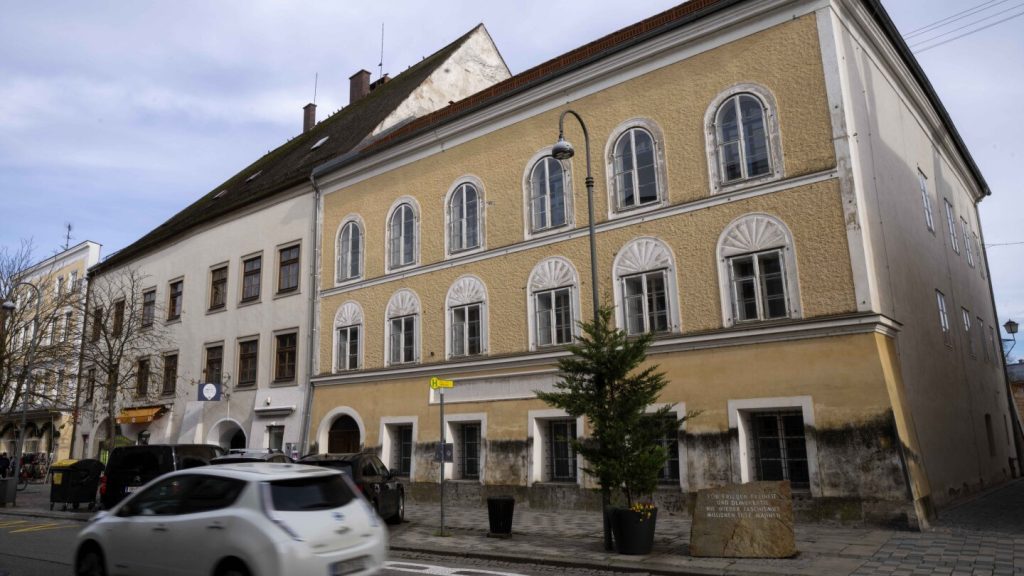The incident took place in the town of Braunau am Inn in Austria, where Adolf Hitler was born in 1889. The group of four Germans, two sisters and their partners in their 20s and early 30s, were caught by patrolling officers as they laid white roses in memory of Hitler at the house where he was born. One of the women was seen giving a Nazi salute as they posed for photos in front of the building. The police took the group in for questioning, where the woman claimed that the salute was not meant seriously. However, officers discovered Nazi-themed messages and pictures on her phone, leading to the four individuals being reported to prosecutors for violating Austrian laws against Nazi symbols.
The house where Hitler was born has been a controversial site, with ongoing debates about its future. Last year, work began to convert the building into a police station in an effort to discourage those who glorify Hitler from making pilgrimages to the site. Despite these efforts, the incident involving the four Germans laying white roses and giving the Hitler salute shows that there are still individuals who seek to pay tribute to the Nazi dictator. The presence of Nazi symbols and imagery remains a sensitive issue in Austria, where laws are in place to prevent the glorification of Hitler and his regime.
The actions of the four German individuals have sparked outrage and condemnation from authorities in Austria. The police have taken swift action by questioning the group and reporting them to prosecutors for violating the laws against Nazi symbols in the country. The incident serves as a reminder of the ongoing challenges in addressing the legacy of Hitler and the atrocities committed during the Nazi era. It also highlights the importance of enforcing laws to prevent the resurgence of neo-Nazi ideologies and symbols in modern society.
The incident at the house where Hitler was born raises questions about how to properly commemorate and remember historical figures who have been associated with atrocities and extremism. The decision to convert the building into a police station was seen as a way to neutralize its significance and prevent it from becoming a pilgrimage site for neo-Nazis. However, the incident involving the four Germans demonstrates that there are still individuals who seek to pay tribute to Hitler and his ideology. It underscores the need for continued efforts to educate the public about the dangers of fascism and the importance of upholding democratic values.
The presence of Nazi symbols and gestures in contemporary society is a troubling reminder of the dark history of the Nazi regime and the horrors it unleashed. The incident in Braunau am Inn serves as a wake-up call about the ongoing threat of extremism and the need to remain vigilant in confronting hate and intolerance. Authorities in Austria are taking the matter seriously by investigating and pursuing legal action against those who violated the laws against Nazi symbols. The incident has sparked a public debate about how to address the legacy of Hitler and ensure that the atrocities of the past are never forgotten or repeated.
Overall, the incident at the house where Hitler was born highlights the delicate balance between remembering history and preventing the glorification of individuals who espoused hatred and violence. It serves as a cautionary tale about the dangers of extremism and the importance of defending democratic values in the face of rising authoritarianism. The actions of the four Germans, who laid white roses in memory of Hitler and gave the Nazi salute, serve as a sobering reminder of the need to remain vigilant against hate and intolerance. The incident underscores the ongoing challenges in addressing the legacy of the Nazi era and the importance of upholding democratic principles in the fight against extremism.


